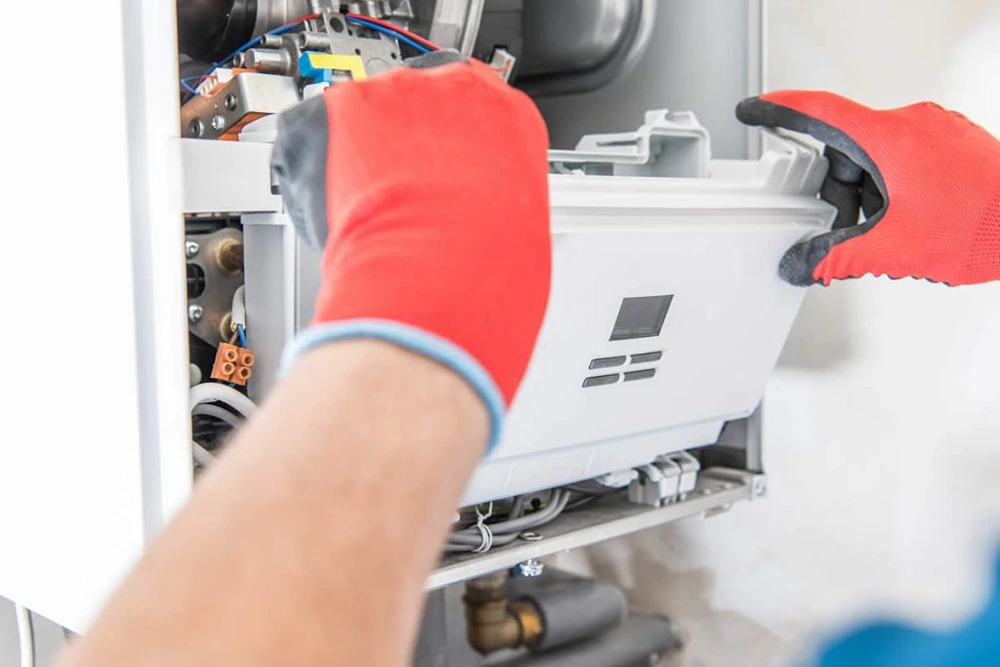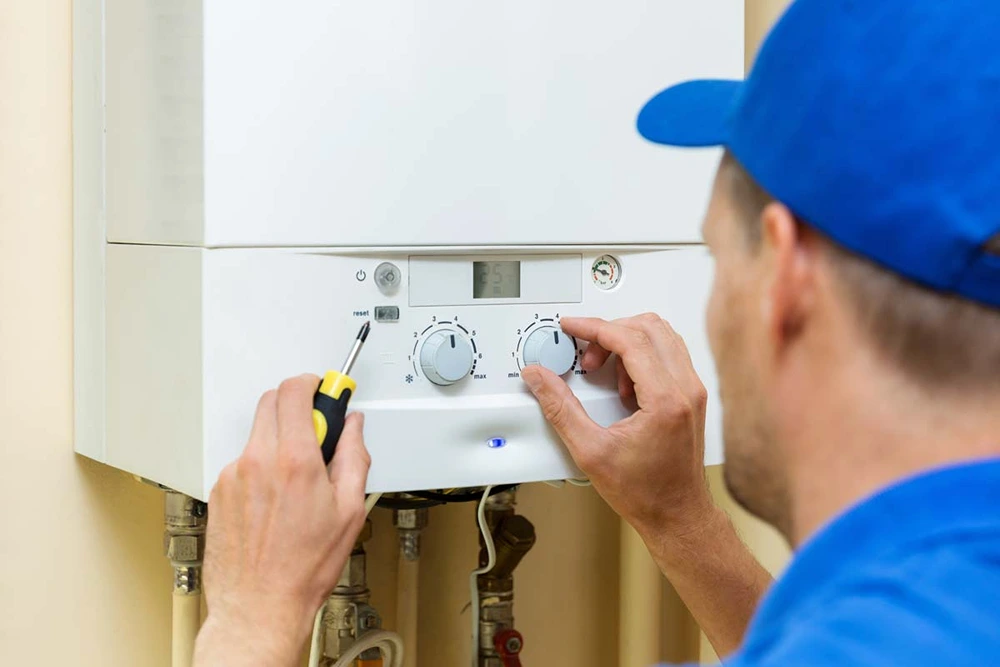Thinking about replacing your boiler but dreading the hassle? You’re not alone. Many homeowners face unnecessary stress during boiler replacements simply due to poor preparation. Navigating this process can be smooth and efficient if you follow a well-structured plan. For more detailed guidance, consider exploring boiler replacement resources that provide comprehensive steps to prepare your home effectively. This preparation can significantly reduce the stress and disruptions often associated with such projects, ensuring a more seamless transition to your new heating system. In this guide, we’ll provide step-by-step instructions to ensure you tackle your boiler replacement with ease, from preparing your home to managing installation disruptions. By the end, you’ll have the tools and knowledge to ensure a seamless experience, minimising downtime and stress. Ready to transform your boiler replacement journey? Let’s get started.

Steps to Prepare for a Smooth Boiler Replacement Process
Preparation is crucial for ensuring a smooth boiler replacement process. Properly preparing your home can minimise disruptions, reduce stress, and facilitate a more efficient installation.
Before the installation team arrives, several logistical steps must be taken. Clear the area around your current boiler to ensure it is accessible. Turn off the gas and water supply to your existing boiler. Verify that the space allocated for the new boiler can accommodate its size and type. Planning for some downtime during the installation is essential, as you may be without heating or hot water for a period. Protect your flooring by using coverings like plastic sheets or drop cloths, and ensure that pets are kept out of the way during the process.
- Clear the area around your current boiler
- Turn off the gas and water supply
- Ensure the allocated space fits the new boiler
- Plan for downtime during installation
- Use coverings to protect your flooring
- Keep pets out of the way
Managing disruptions and stress during boiler replacement involves planning and communication. Inform family members about the expected downtime and make any necessary arrangements, such as temporary heating solutions. Maintaining open communication with the installation team can help address any concerns promptly, ensuring a smoother experience overall.
How to Choose the Right Boiler for Your Home
Choosing the right boiler for your home is crucial for ensuring effective heating and hot water supply. The ideal boiler should meet your specific requirements based on the number of bedrooms, bathrooms, and overall size of your property. Understanding the importance of choosing the right boiler size can ensure optimal performance and energy efficiency, tailored to your home’s unique needs. It should also align with your heating habits and hot water usage patterns to provide optimal performance.
Combi Boilers
Combi boilers are a popular choice for many households due to their space-saving design and ability to provide instant hot water. These boilers do not require a separate hot water cylinder or cold water tank, making them perfect for homes with limited space. Combi boilers are highly efficient, providing hot water on demand, which reduces energy waste.
System Boilers
System boilers are suitable for homes with higher hot water demands. They require a separate hot water cylinder but do not need a cold water tank, which simplifies installation. System boilers can supply hot water to multiple taps simultaneously, making them an excellent option for larger households. They also offer efficient heating and are easier to install than regular boilers.
Regular Boilers
Regular boilers, also known as traditional or conventional boilers, are ideal for older properties and homes with existing traditional heating systems. They require both a hot water cylinder and a cold water tank. Regular boilers are compatible with older radiators and pipework, making them a good choice for homes that need to maintain existing heating infrastructure. They can handle high hot water demand but take up more space compared to combi and system boilers.
High-efficiency boilers can significantly reduce energy bills and carbon footprints. By exploring boiler efficiency ratings, you can identify models that offer the best performance and environmental benefits, ensuring your investment contributes to both cost savings and sustainability. When selecting a boiler, consider models with high-efficiency ratings to maximise cost savings and environmental benefits. Eco-friendly boilers, often equipped with advanced technologies, offer additional benefits such as reduced emissions, making them a smart choice for environmentally conscious homeowners.

Finding a Qualified Engineer for Boiler Replacement
Hiring a qualified professional is paramount to ensuring your boiler replacement is performed correctly and safely. A skilled engineer will not only guarantee that the installation meets all regulatory standards but also optimise the boiler’s performance for energy efficiency and longevity.
Verifying the credentials and reliability of the installation team is crucial. Collaborate with Gas Safe-approved engineers who have the necessary certifications. Always check for Gas Safe certification to ensure they are authorised to work with gas appliances. Obtain references and read reviews to confirm the engineer’s track record. Scheduling a free home survey can also help in selecting the right boiler for your property.
- Choose a qualified professional to ensure the job is done correctly and safely.
- Seek local support by collaborating with Gas Safe-approved engineers.
- Verify the credentials of the installation team, including Gas Safe certification.
- Obtain references and read reviews to ensure the reliability of the engineer.
- Schedule a free home survey to help select the right boiler for your property.
Understanding the Boiler Replacement Timeline
Boiler replacement should be considered every 10 to 15 years. The timeline for boiler replacement generally includes several key stages: initial assessment, choosing the boiler, installation day, and post-installation checks. During the initial assessment, a qualified engineer evaluates your current system, discusses your heating needs, and helps you select the best boiler for your home. Once the boiler is chosen, you can plan for the installation day. It’s important to schedule the replacement during milder weather to minimise the impact of heating downtime. The installation process usually takes one to two days, depending on the complexity of the job.
On the installation day, expect some disruptions as the old boiler is removed and the new one is installed. The engineer will connect the new boiler to your existing heating system, test it, and ensure it is functioning correctly. After installation, the engineer will conduct post-installation checks to confirm everything is operating efficiently and safely. Familiarise yourself with the boiler controls to optimise energy efficiency, and ask any questions you may have about maintenance and operation. Proper planning and understanding the timeline can help ensure a smooth and efficient boiler replacement experience.

Cost Considerations for Boiler Replacement
The cost of a boiler replacement depends on several factors, including the model and type of boiler required for your property. Understanding the cost of a new boiler can help you budget effectively and make informed decisions about which model best suits your needs and financial situation. High-efficiency models and eco-friendly options tend to have higher upfront costs but offer long-term savings through reduced energy bills. The size of your home and your heating needs also influence the cost. For instance, larger properties or homes with higher hot water demand may require more powerful and consequently more expensive boilers. Additionally, the complexity of the installation, such as the need for extra piping or ventilation adjustments, can add to the overall cost.
Financing options for boiler replacement can make the process more manageable. Many service providers offer various financing plans, including interest-free finance, PayPal, and “buy now, pay in 12 months” schemes. Payments can often be made securely online by card or PayPal, allowing for flexible payment arrangements. These financing options can help spread the cost over a period, making it easier to budget for the replacement without a significant upfront financial burden.
| Boiler Type | Cost Range | Financing Options |
|---|---|---|
| Combi Boiler | £1,500 – £3,000 | Interest-free finance, PayPal, 12-month |
| System Boiler | £2,000 – £4,000 | Interest-free finance, PayPal, 12-month |
| Regular Boiler | £2,500 – £5,000 | Interest-free finance, PayPal, 12-month |
| High-Efficiency | £3,000 – £6,000 | Interest-free finance, PayPal, 12-month |
Obtaining multiple quotes is essential to ensure you get the best value for your investment. Comparing quotes from different providers will give you a sense of the market rates and help you identify any potential hidden costs. Be mindful of unexpected costs that may arise during the installation, such as additional piping or ventilation requirements. By being prepared and asking the right questions, you can manage these costs effectively and ensure a smooth boiler replacement experience.
Benefits of Replacing Your Old Boiler
New boilers offer significantly improved efficiency, which translates directly into lower energy bills. If you’re considering upgrading your boiler system, it’s important to weigh the long-term savings against the initial investment. Upgraded systems not only enhance efficiency but also improve overall home comfort and safety. Modern boilers are designed to use fuel more effectively, reducing energy waste and ensuring that more of the energy consumed is converted into heat. This high efficiency not only reduces your monthly energy costs but also lowers your overall carbon footprint, making it an environmentally friendly choice. Additionally, the installation of an energy-efficient boiler can enhance the value of your property, as potential buyers are often willing to pay a premium for homes with modern, efficient heating systems.
In terms of reliability, modern boilers are designed with advanced technology that requires less maintenance and reduces the risk of malfunctions. Enhanced safety features, such as automatic shut-off mechanisms and improved pressure controls, further reduce the risk of dangerous malfunctions. Upgraded boiler systems also improve the overall comfort and heating efficiency of your home, providing consistent and reliable heat distribution. This leads to a more comfortable living environment and eliminates cold spots within your home.
- Improved efficiency leading to lower energy bills
- Reduced need for maintenance and increased reliability
- Enhanced safety features reducing the risk of malfunctions
- Better overall comfort and heating efficiency
- Increased property value due to modern, energy-efficient systems

Common Mistakes to Avoid During Boiler Replacement
Proper planning and professional installation are essential to ensure a smooth boiler replacement process. One common mistake is failing to schedule the installation during milder weather. This oversight can lead to significant heating downtime, especially during colder months, making the replacement process more stressful. Hiring a qualified professional is crucial; attempting a DIY replacement can lead to safety hazards and suboptimal performance. Certified engineers have the expertise to install the boiler correctly, ensuring it meets all regulatory standards and functions efficiently.
Compatibility with existing heating systems is another critical factor. Before replacing your boiler, verify that the new unit is compatible with your current system to avoid functionality issues. Proper disposal of the old boiler is also important to prevent environmental hazards. Engaging a professional ensures that the old unit is disposed of responsibly, adhering to local regulations and environmental guidelines.
- Avoid heating downtime by planning for installation in milder weather
- Ensure proper disposal of the old boiler to avoid environmental hazards
- Hire a qualified professional rather than attempting a DIY replacement
- Check compatibility with existing heating systems to avoid functionality issues
Final Words
Preparing for a smooth boiler replacement involves several key steps, including clearing the area, turning off supplies, and protecting your flooring. Selecting the right boiler requires understanding your home’s needs and evaluating different boiler types.
Hiring a qualified engineer is crucial, and verifying their credentials ensures a safe installation. Understanding the timeline and cost considerations aids in planning effectively. New boilers bring numerous benefits, including efficiency and reliability.
By following these guidelines, homeowners can ensure a smooth boiler replacement experience, leading to improved home comfort and energy savings.
FAQ
How do I prepare for a smooth boiler replacement process?
Preparing for a smooth boiler replacement involves taking several steps to ensure the installation goes efficiently. Clear the area around your current boiler and turn off the gas and water supply beforehand.
What should I do before installing a new boiler?
Before installing a new boiler, make sure to:
- Ensure the allocated space for the new boiler can accommodate its size and type.
- Use coverings like plastic sheets or drop cloths to protect your flooring.
- Keep pets out of the way during the process.
How can I manage disruptions and stress during boiler replacement?
Managing disruptions and stress involves planning for some downtime during the installation process. Coordinate with your installer to understand the timeline and take steps to minimize household disruptions.
How to choose the right boiler for your home?
Choosing the right boiler involves determining your specific heating requirements. Consider the number of bedrooms, bathrooms, and your overall hot water usage to select the most suitable boiler type.
What are the benefits of combi boilers?
Combi boilers are space-saving as they don’t require a separate hot water cylinder. They provide instant hot water on demand, making them ideal for smaller homes with lower hot water requirements.
Why choose a system boiler for my home?
System boilers are suitable for homes with higher hot water demands. They use a separate cylinder to store hot water, ensuring a constant hot water supply for multiple taps simultaneously.
When should I consider a regular boiler?
Regular boilers are ideal for older heating systems and larger properties. They use a hot water cylinder and cold water storage tank, making them suitable for homes with traditional plumbing systems.
How do I find a qualified engineer for boiler replacement?
Finding a qualified engineer involves choosing a Gas Safe-approved professional. Verify their credentials and seek local support to ensure the job is done correctly and safely.
How can I verify the reliability of a heating engineer?
To verify the reliability of a heating engineer:
- Check Gas Safe certification.
- Obtain references.
- Read reviews.
- Schedule a home survey to assess their expertise.
What is the typical timeline for boiler replacement?
The typical timeline for boiler replacement includes an initial assessment, choosing the boiler, installation day, and post-installation checks. The process usually takes one to two days.
What should I expect during the boiler installation day?
During boiler installation, plan for some downtime. The process involves removing the old boiler, fitting the new one, and performing checks to ensure it functions correctly. Post-installation, familiarize yourself with boiler controls.
What are the cost considerations for boiler replacement?
The cost of a boiler replacement depends on the model and type required for your property. Obtain multiple quotes and consider potential unexpected costs, such as additional piping or ventilation requirements.
What financing options are available for boiler replacement?
Financing options include interest-free finance, PayPal, and buy now, pay in 12 months. Secure payments can be made online by card or PayPal.
What are the benefits of replacing your old boiler?
Replacing your old boiler with a new model offers improved efficiency, leading to lower energy bills. New boilers are more reliable, have enhanced safety features, and can increase your property’s value.
How does a new boiler improve home comfort?
A new boiler improves home comfort by providing consistent and efficient heating. Upgraded systems ensure better heat distribution and reduce cold spots in your home.
What are common mistakes to avoid during boiler replacement?
Common mistakes during boiler replacement include: Reviewing mistakes to avoid when replacing your boiler can help you sidestep potential pitfalls. By understanding these common errors, you can ensure a smoother process and avoid unnecessary complications that could lead to increased costs or delays.
- Not planning for installation in milder weather.
- Improper disposal of the old boiler.
- Attempting DIY replacement instead of hiring a professional.
- Not checking compatibility with existing heating systems.


